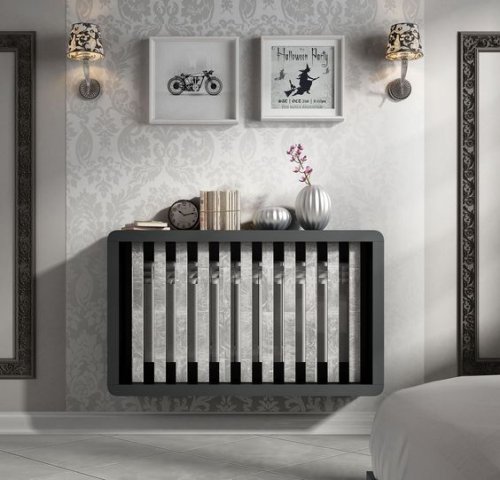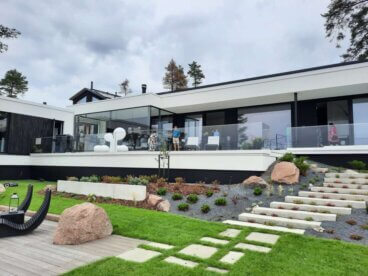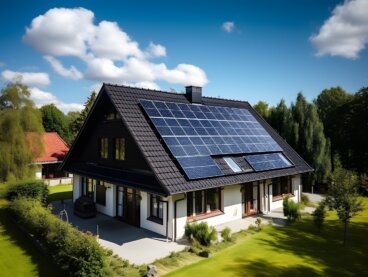What Kind of Heating System Should You Choose for Your Home?

In our post today, we’d like to share some ideas and concepts about heating systems.
As you’ll see on the market, there are several heating systems to choose from. You just have to find the one that best suits your needs and your home because, as we all know, every home is different.
To make the right choice, you’ll need to consider the space that you have available, your windows, and insulation. How you make your energy use efficient will depend on those factors.
Choosing the best system for your home isn’t easy, so we want explain some characteristics about each type that’s available.
Gas heating systems
Gas is a clean and efficient heating system with a promising future. More and more homes are using gas and newer constructions are built with a gas supply and radiators for completely even heat distribution.
There are different types of gas:
- Natural gas: the good thing about natural gas is that you don’t have to worry about storing it because it comes from an exterior source.
- Diesel: diesel’s biggest pro is that it heats up large areas. However, you have to store it at home. Additionally, it’s considered a pollutant.
- Propane gas: propane is very powerful. However, you have to keep an eye on it, refilling it periodically.
Electric heating systems
Electric heating systems convert electricity into heat.
As for installation, it’s pretty simple. After you install the system, it doesn’t need that much maintenance either.
There are two types of electric heating systems: storage and convection. Storage heaters use electrical resistors. The latter works by heating the air that circulates through the convectors.
Electric heating systems aren’t pollutants. However, they require an advanced electrical system because they consume a lot of energy and can raise electricity bills.
You can find portable electric heating options as well as fixed ones, which are ideal for heating up specific areas.
An advantage of these heaters is that they heat spaces up fast, so you don’t need to use them continuously. But while electric heat is efficient, it’s very expensive, surpassing the costs of gas.

Thermoelectric energy
Thermoelectric systems transmit heat by heating a special oil through the transmission of electric energy.
Each radiator has its own thermostat, functioning independently. That means that you can shut off the heaters in the rooms that you don’t want to warm up, saving big on electric energy. However, overusing all of the radiators can have costly consequences. So, if your home has big rooms, it won’t be the best deal for you.
On another note, even after you turn off all the radiators, they still release heat for a little while longer. The temperatures are generally very stable.
Underfloor heating system
Underfloor heating systems use a pipe system underneath the home flooring. Water circulates through the tubes, and the water can be either hot or cold.
Though this system, lower areas will always be warmer than higher ones. But in any case, heat is distributed completely evenly throughout the home.
The problem is that it takes a while for the water to heat up or cool down, so we only recommend it for homes that’ll use it continuously; if that’s not the case, it won’t be the best deal for you.
It’s a heating system that ends up being quite expensive. In a 100 m² home, you might have to pay around 8,000 euros to install it. Additionally, they require a good deal of maintenance. However, you can think of it as a long-term investment, steadily getting your money’s worth.
Although it’s a relatively newer system in Spain, more and more families are choosing underfloor heating systems for their homes. Another small advantage is that it takes up little space because it’s completely underfloor. So, it’s really great for small homes.
Conclusion
Before you go, remember that when you’re thinking about the best heating system for your home, you should also consider a boiler (very common) or a heat pump as an option.
Any of the options that we discussed today can be a good choice; you just need to find the one that’ll best suit your home, best meeting its characteristics and your needs.
In our post today, we’d like to share some ideas and concepts about heating systems.
As you’ll see on the market, there are several heating systems to choose from. You just have to find the one that best suits your needs and your home because, as we all know, every home is different.
To make the right choice, you’ll need to consider the space that you have available, your windows, and insulation. How you make your energy use efficient will depend on those factors.
Choosing the best system for your home isn’t easy, so we want explain some characteristics about each type that’s available.
Gas heating systems
Gas is a clean and efficient heating system with a promising future. More and more homes are using gas and newer constructions are built with a gas supply and radiators for completely even heat distribution.
There are different types of gas:
- Natural gas: the good thing about natural gas is that you don’t have to worry about storing it because it comes from an exterior source.
- Diesel: diesel’s biggest pro is that it heats up large areas. However, you have to store it at home. Additionally, it’s considered a pollutant.
- Propane gas: propane is very powerful. However, you have to keep an eye on it, refilling it periodically.
Electric heating systems
Electric heating systems convert electricity into heat.
As for installation, it’s pretty simple. After you install the system, it doesn’t need that much maintenance either.
There are two types of electric heating systems: storage and convection. Storage heaters use electrical resistors. The latter works by heating the air that circulates through the convectors.
Electric heating systems aren’t pollutants. However, they require an advanced electrical system because they consume a lot of energy and can raise electricity bills.
You can find portable electric heating options as well as fixed ones, which are ideal for heating up specific areas.
An advantage of these heaters is that they heat spaces up fast, so you don’t need to use them continuously. But while electric heat is efficient, it’s very expensive, surpassing the costs of gas.

Thermoelectric energy
Thermoelectric systems transmit heat by heating a special oil through the transmission of electric energy.
Each radiator has its own thermostat, functioning independently. That means that you can shut off the heaters in the rooms that you don’t want to warm up, saving big on electric energy. However, overusing all of the radiators can have costly consequences. So, if your home has big rooms, it won’t be the best deal for you.
On another note, even after you turn off all the radiators, they still release heat for a little while longer. The temperatures are generally very stable.
Underfloor heating system
Underfloor heating systems use a pipe system underneath the home flooring. Water circulates through the tubes, and the water can be either hot or cold.
Though this system, lower areas will always be warmer than higher ones. But in any case, heat is distributed completely evenly throughout the home.
The problem is that it takes a while for the water to heat up or cool down, so we only recommend it for homes that’ll use it continuously; if that’s not the case, it won’t be the best deal for you.
It’s a heating system that ends up being quite expensive. In a 100 m² home, you might have to pay around 8,000 euros to install it. Additionally, they require a good deal of maintenance. However, you can think of it as a long-term investment, steadily getting your money’s worth.
Although it’s a relatively newer system in Spain, more and more families are choosing underfloor heating systems for their homes. Another small advantage is that it takes up little space because it’s completely underfloor. So, it’s really great for small homes.
Conclusion
Before you go, remember that when you’re thinking about the best heating system for your home, you should also consider a boiler (very common) or a heat pump as an option.
Any of the options that we discussed today can be a good choice; you just need to find the one that’ll best suit your home, best meeting its characteristics and your needs.







